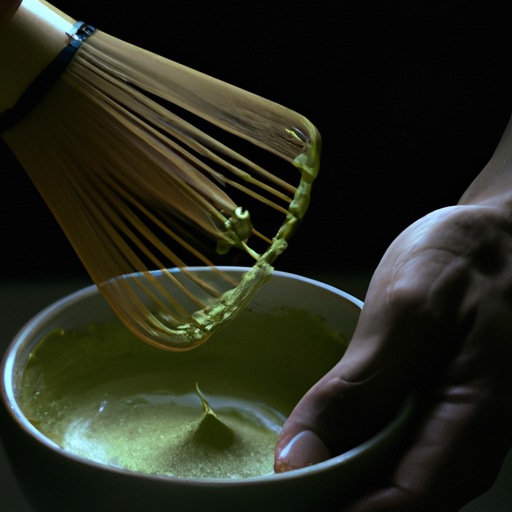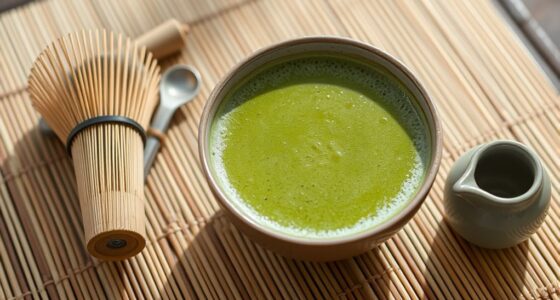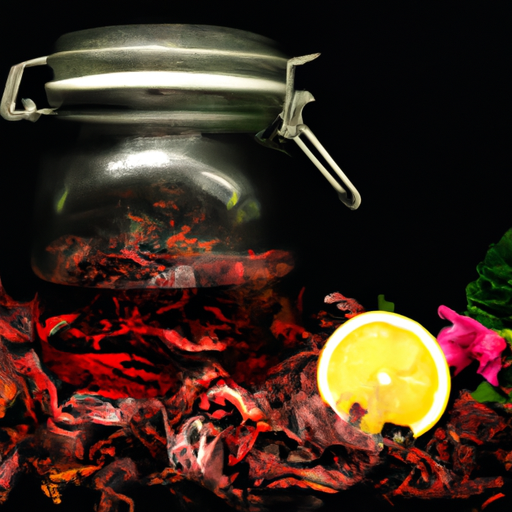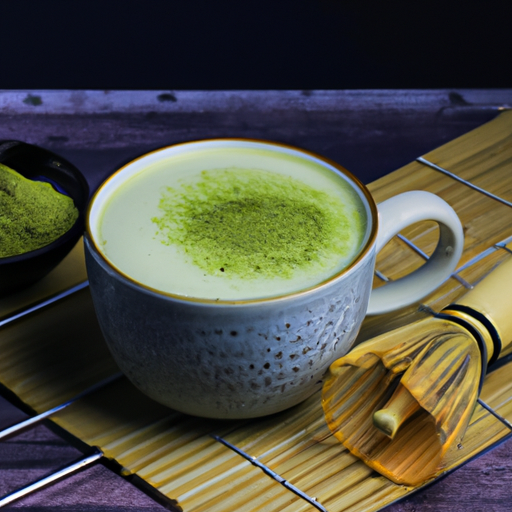Matcha has turned into one of my preferred drinks, yet embracing it hasn’t been entirely smooth sailing. Occasionally, I suffer from stomach aches post-matcha consumption, which leaves me puzzled about the potential reasons behind this unease.
As I delved into this issue, I discovered that I am not alone in this predicament, and many others experience similar symptoms after drinking matcha.
Matcha has been touted as a superfood due to its impressive health benefits, including increased energy, improved metabolism, and reduced risk of chronic diseases. However, the potential side effects, such as stomach pain, cannot be ignored.
In this article, we will explore the reasons why matcha may hurt your stomach, including the role of caffeine and tannins in irritating the stomach, individual sensitivities to matcha, and the steps you can take to minimize the risk of experiencing stomach discomfort after consuming matcha.
Key Takeaways
- Matcha can cause digestive issues such as stomach pain, bloating, and gas in some individuals.
- Pairing matcha with food, choosing high-quality matcha, and consuming it in moderation can reduce the risk of stomach discomfort.
- Drinking plenty of water, avoiding spicy or fatty foods, and taking antacids or probiotics can help soothe the stomach and promote healthy digestion.
- Persistent or severe symptoms may require medical attention, and matcha alternatives such as green tea or turmeric latte may be considered based on taste preferences.
Explanation of Matcha and its Popularity
Matcha has become increasingly popular in recent years due to its numerous health benefits and unique preparation process. This vibrant green tea is made by grinding shade-grown tea leaves into a fine powder, which is then whisked into hot water.
Matcha has a rich cultural history, originating in China during the Tang Dynasty before spreading to Japan in the 12th century. Japanese monks later adopted matcha as a central element in their tea ceremonies, which emphasized the connection between mindfulness and the preparation of tea.
Matcha production techniques are highly specialized and require significant skill. The tea leaves are first shaded for several weeks before they are harvested, which increases their chlorophyll content and gives the leaves a vibrant green color. After harvest, the leaves are steamed, dried, and sorted before being ground into a fine powder. This process helps to preserve the tea’s flavor and nutrient content, which includes high levels of antioxidants and amino acids.
Despite its many benefits, some people may experience stomach discomfort after drinking matcha. In the next section, we will explore some of the reasons why matcha can hurt your stomach and what you can do to prevent this from happening.
Overview of the Health Benefits of Matcha
Imagine feeling energized and focused, with a heightened sense of calm and reduced stress levels, all from sipping on a delicious bright green beverage. This is the magic of matcha, a powdered green tea that has taken the world by storm for its numerous health benefits.
Here are some of the benefits of matcha that make it one of the most popular superfoods today:
- Matcha is packed with antioxidants that help fight against inflammation, aging, and chronic diseases.
- Matcha is a rich source of catechins, a type of antioxidant that has been shown to improve heart health and lower blood pressure.
- Matcha contains L-theanine, an amino acid that promotes relaxation and improves cognitive function.
- Matcha is a versatile ingredient that can be used in various recipes, including smoothies, lattes, and baked goods.
Compared to regular green tea, matcha is more potent and concentrated, which means its health benefits are more pronounced. Additionally, matcha is prepared differently from green tea, where the leaves are ground into a fine powder and mixed with water, rather than steeped in hot water.
Matcha’s unique preparation process also makes it easier for the body to absorb its nutrients. While matcha is known for its health benefits, some people may experience stomach pain after consuming it. In the next section, we’ll explore the potential causes of this discomfort and ways to prevent it.
The Potential Causes of Stomach Pain After Consuming Matcha
Experiencing stomach discomfort after drinking matcha? Let’s explore the potential causes of this issue.
One possible cause of stomach pain after consuming matcha is the preparation process. Matcha powder is made by grinding whole tea leaves into a fine powder, and if the leaves aren’t properly processed, they may contain impurities that can cause digestive issues. To avoid this, it’s important to purchase high-quality matcha from a reputable source and to prepare it correctly according to the instructions.
Another potential cause of stomach pain after drinking matcha is digestive disorders. Individuals who have underlying digestive issues such as irritable bowel syndrome (IBS), acid reflux, or lactose intolerance may be more sensitive to the caffeine and other compounds in matcha, leading to stomach discomfort. If you have a pre-existing digestive condition, it’s best to speak with a healthcare professional before consuming matcha or any other food or beverage that may trigger symptoms.
While matcha is generally considered a healthy beverage with numerous health benefits, it can cause stomach pain in some individuals. To avoid this, it’s important to purchase high-quality matcha and prepare it correctly. Additionally, individuals with pre-existing digestive conditions should speak with a healthcare professional before consuming matcha to determine if it’s safe for them.
In the next section, we’ll explore the role of caffeine in irritating the stomach.
The Role of Caffeine in Irritating the Stomach
If you’re sensitive to caffeine, it might irritate your stomach and cause discomfort when consuming it in matcha or other beverages. Caffeine is a stimulant that affects the central nervous system, increasing heart rate and blood pressure.
It also stimulates the production of stomach acid, which can lead to acid reflux and stomach pain. People with caffeine sensitivity may experience these symptoms even at low doses of caffeine, such as the ones found in matcha.
Stomach acid levels can also play a role in how matcha affects your stomach. If you have a condition like gastritis or acid reflux, the increased stomach acid production caused by caffeine can exacerbate your symptoms.
Additionally, drinking matcha on an empty stomach can lead to stomach irritation and discomfort. It’s recommended to consume matcha with a meal or snack to help buffer the effects of caffeine on your stomach.
In the next section, we’ll explore the effects of tannins on digestion. These compounds are also found in matcha and can contribute to stomach pain and discomfort. However, it’s important to first understand how caffeine sensitivity and stomach acid levels can affect your experience with matcha.
The Effects of Tannins on Digestion
You may be surprised to learn that tannins, a common compound found in many plant-based foods and drinks, can have an impact on how your digestive system functions. Tannins are known to interfere with the absorption of certain nutrients, such as iron and protein, in the body. They also bind to digestive enzymes, which can slow down the breakdown of food in the stomach and intestines.
When it comes to matcha, the high levels of tannins present in the tea can cause digestive issues for some people. Tannins can irritate the lining of the stomach and intestines, leading to discomfort, bloating, and nausea. Additionally, the tannin content in matcha can interfere with the absorption of other nutrients in the tea, such as antioxidants.
It’s important to note that individual sensitivities to matcha can vary greatly. While some people may experience stomach discomfort due to tannin absorption, others may not have any issues at all. If you find that matcha consistently causes digestive issues for you, it may be best to limit your consumption or consult with a healthcare professional.
Individual Sensitivities to Matcha
It’s important to understand how much matcha your body can handle without causing any discomfort or negative effects. Some people may experience matcha intolerance, which can lead to digestive issues, such as bloating, gas, and stomach pain. This occurs when the body is unable to properly break down and absorb certain components in matcha, such as caffeine and catechins.
If you suspect that you have matcha intolerance, it’s best to start with a small amount and gradually increase your intake over time. Pay attention to how your body reacts and adjust accordingly. Additionally, you can try switching to a higher quality matcha, which may have fewer impurities and a smoother taste.
It’s also important to note that matcha should not be consumed on an empty stomach, as this can exacerbate digestive issues. In order to reduce the risk of stomach pain after consuming matcha, there are a few things you can do. First, make sure to drink plenty of water to help flush out any toxins and aid in digestion. You can also try consuming matcha with a meal or snack that contains healthy fats, such as avocado or nuts, which can help slow down the absorption of caffeine and other components in matcha.
Lastly, be sure to listen to your body and take breaks from consuming matcha if necessary.
Ways to Reduce the Risk of Stomach Pain After Consuming Matcha
I’ve learned that some people may experience stomach pain after consuming matcha, but there are ways to reduce the risk of discomfort.
One way is to limit consumption to a moderate amount, such as one or two cups a day.
Another way is to pair matcha with food, which can help to slow down the absorption of caffeine and reduce the risk of stomach irritation.
Lastly, choosing high-quality matcha can make a difference as lower quality matcha may contain impurities that can upset the stomach.
Limiting Consumption
Reducing the amount of matcha consumed may alleviate stomach discomfort, as well as incorporating other forms of green tea into one’s diet. Moderation tips include starting with smaller servings of matcha and gradually increasing the amount over time. It’s also important to pay attention to how one’s body reacts to matcha and adjust accordingly.
Herbal remedies such as ginger or peppermint tea may also help soothe any stomach discomfort. In addition to limiting consumption, pairing matcha with certain foods may also help alleviate stomach discomfort.
Pairing matcha with foods that are easy to digest, such as rice or steamed vegetables, can help prevent digestive issues. It’s also important to avoid pairing matcha with highly acidic or spicy foods, which can irritate the stomach.
By taking these steps, one can enjoy the benefits of matcha without experiencing any negative side effects.
Pairing with Food
To avoid any discomfort, I recommend pairing your matcha with easily digestible foods like rice or steamed vegetables. This can help ease the burden on your digestive system and prevent any stomach pain or discomfort.
Here are some other food pairings that can aid in digestion and enhance the flavor of your matcha:
- Fresh fruit, such as berries or bananas, which contain digestive enzymes that can help break down food.
- Nuts or seeds, which provide healthy fats that can slow digestion and help your body absorb nutrients more efficiently.
- Yogurt or kefir, which contain probiotics that can improve gut health and aid in digestion.
- Lean proteins, such as chicken or fish, which can help balance the amino acids in your meal and support digestion.
- Ginger, which has been shown to have anti-inflammatory properties and can help ease digestive discomfort.
By pairing your matcha with these types of foods, you can help ensure that your body is able to digest the tea properly and avoid any unwanted stomach pain or discomfort.
Now, let’s move on to the next section and discuss how to choose high-quality matcha.
Choosing High-Quality Matcha
When choosing high-quality matcha, you’ll want to look for a bright green color, a fine powder texture, and a fresh, grassy aroma. These characteristics indicate that the matcha was grown in a suitable region with ideal weather conditions and harvested using proper techniques. Matcha that comes from Japan’s southern regions, such as Kagoshima and Miyazaki, tend to have a sweeter taste, while matcha from Uji, Kyoto, is known for its strong umami flavor.
Grinding methods also play a significant role in the quality of matcha. Matcha that is stone-ground and not excessively heated during the process is considered high-quality. Additionally, storage tips are essential in maintaining the freshness of matcha. It should be kept in an airtight container and stored in the refrigerator to prevent oxidation.
By selecting high-quality matcha, you can reduce the likelihood of experiencing stomach discomfort while enjoying all the health benefits it has to offer.
As we explore alternative beverages with similar health benefits, it’s important to note that the quality of the ingredients used can also affect stomach discomfort. Let’s take a closer look at some options.
Alternative Beverages with Similar Health Benefits
If matcha is causing discomfort in your stomach, there are other beverages you can try that offer similar health benefits. Have you considered switching to green tea or turmeric latte for a change?
Both green tea and turmeric latte contain antioxidants that help fight inflammation and protect against chronic diseases. Green tea is also rich in L-theanine, which promotes relaxation and can improve brain function. Meanwhile, turmeric latte, also known as golden milk, contains curcumin, a compound with powerful anti-inflammatory effects.
When comparing matcha alternatives, taste preferences play a significant role in making the switch. Green tea has a more subtle flavor profile compared to matcha’s strong, grassy taste. Turmeric latte, on the other hand, has a warm, spicy taste that can be enhanced with additional spices like cinnamon and ginger. It’s also a great option for those who prefer non-caffeinated beverages since it’s typically made with almond milk or coconut milk.
While switching to matcha alternatives can help alleviate stomach discomfort, it’s important to note that persistent pain or severe symptoms may require medical attention. In the next section, we’ll discuss when it’s appropriate to seek professional help for matcha-related stomach pain.
When to Seek Medical Attention for Matcha-Related Stomach Pain
So you’ve been indulging in matcha, eh? Your stomach’s been feeling a little off lately and you’re wondering if it’s time to seek some medical attention. Well, the truth is that matcha can cause stomach pain, but it’s usually not a cause for concern. However, there may be certain situations where medical consultation is necessary.
If you experience severe stomach pain, vomiting, or diarrhea after drinking matcha, it’s important to seek medical attention. These symptoms may be indicative of an underlying condition or an allergic reaction. Your doctor may recommend tests or prescribe medication to alleviate your symptoms.
In most cases, stomach pain caused by matcha can be treated with simple home remedies. Drinking plenty of water, eating small, frequent meals, and avoiding spicy or fatty foods can help ease your discomfort. Additionally, taking an over-the-counter antacid or probiotic supplement may help soothe your stomach and promote healthy digestion.
If your symptoms persist or worsen, however, it’s always best to consult with a healthcare professional.
Frequently Asked Questions
How long does it take for stomach pain to occur after consuming matcha?
In my experience, the onset of stomach pain after consuming matcha can vary depending on various factors, including matcha brewing techniques and matcha quality sources. Generally, it can take anywhere from 30 minutes to a few hours for the symptoms to appear.
However, it’s important to note that there could be other underlying reasons for stomach discomfort after drinking matcha, such as allergies or sensitivity to caffeine. To prevent such issues, it’s advisable to choose a reputable matcha supplier and to ensure that the brewing process is done correctly.
By taking these precautions, you can enjoy the many benefits of matcha without experiencing any adverse effects.
Can drinking matcha on an empty stomach cause more stomach pain?
Oh boy, let me tell you about my love-hate relationship with matcha. On one hand, it’s a delicious and energizing beverage that I can’t resist. On the other hand, it has a tendency to wreak havoc on my stomach.
So, can drinking matcha on an empty stomach cause more stomach pain? The short answer is yes, it can. Matcha contains caffeine and catechins, which can irritate the stomach lining and exacerbate conditions like stomach ulcers and acid reflux. It’s best to consume matcha with some food in your stomach to help ease any potential discomfort.
However, if you’re like me and can’t resist a matcha latte on an empty stomach, try opting for a lower caffeine content or adding some milk to help balance out the acidity. As with anything, moderation is key when it comes to matcha and your stomach.
Is it safe to consume matcha while pregnant or breastfeeding?
As someone who’s pregnant or breastfeeding, it’s important to weigh the benefits and risks of consuming matcha. While matcha does contain antioxidants and other beneficial nutrients, it also contains caffeine, which can negatively impact the fetus or newborn.
It’s recommended to limit caffeine intake during pregnancy and breastfeeding. Alternatives and substitutes to matcha include herbal teas, which are naturally caffeine-free and can provide similar health benefits.
It’s always best to consult with a healthcare provider before adding any new foods or supplements to your diet during pregnancy or breastfeeding.
Are there any medications or supplements that should be avoided when consuming matcha?
As someone who enjoys consuming matcha, I’ve done some research on the potential interactions between medications and supplements when consuming this green tea.
It’s important to note that matcha contains high levels of caffeine, which can interact with certain medications such as blood thinners and stimulants.
Additionally, matcha contains digestive enzymes that can impact the absorption of medications and supplements.
It’s always best to consult with a healthcare provider before consuming matcha alongside any medications or supplements, to ensure there are no negative interactions.
How much matcha is considered safe to consume in a day?
When it comes to consuming matcha, it’s important to understand the safe amount to consume in a day. While matcha provides many benefits, including antioxidants and increased energy, it’s important to not overdo it.
Generally, it’s safe to consume up to 3 cups of matcha per day, but this can vary depending on the individual and any pre-existing health conditions. It’s also important to note that consuming matcha in excess can lead to stomach discomfort and other negative side effects.
To avoid this, try incorporating matcha into various recipes, such as smoothies or baked goods, rather than solely drinking it as a beverage. By doing so, you can enjoy the benefits of matcha without overconsuming it.
Conclusion
In conclusion, matcha may not be suitable for everyone due to its potential to cause stomach pain. The caffeine and tannins in matcha can irritate the stomach, and individual sensitivities to the drink can also play a role. However, there are ways to reduce the risk of experiencing stomach pain, such as consuming matcha in moderation and pairing it with food.
It’s important to listen to your body and recognize any discomfort or pain after consuming matcha. If the stomach pain persists or is severe, it’s best to seek medical attention.
Overall, matcha can be a refreshing and healthy drink option, but it’s important to be mindful of how it affects your body and make adjustments accordingly. As the saying goes, "everything in moderation,"and this applies to matcha consumption as well.










